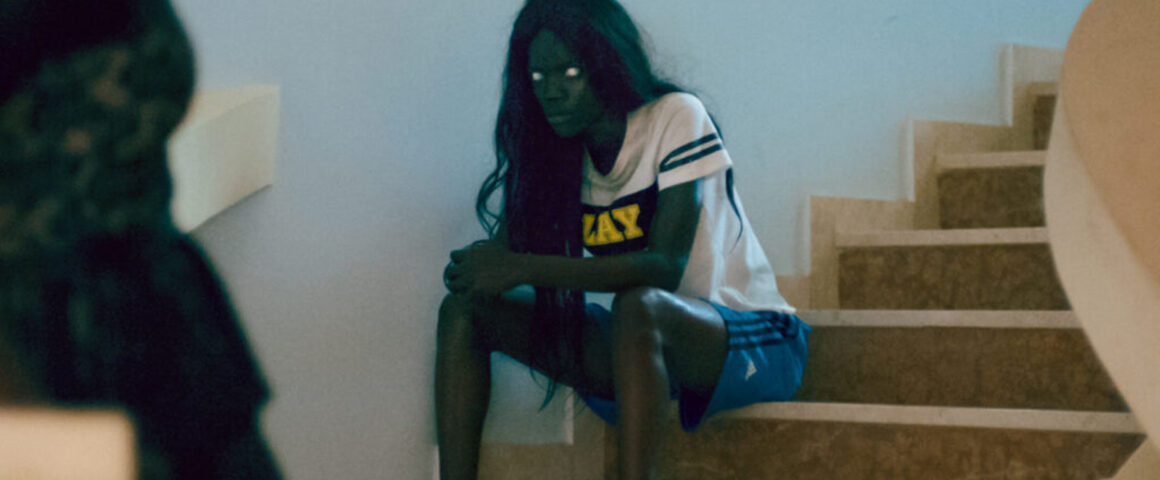“Break a vase, and the love that reassembles the fragments is stronger than that love which took its symmetry for granted when it was whole” — Derek Walcott
To French-Senegalese director Mati Diop, the ocean is a “holy temple,” a shimmering presence that reflects the economic and social aspirations of people seeking a better life. Repeated shots of ocean waves and brilliant orange sunsets create an eerie mood in her first feature Atlantics, Palme d’Or nominee and winner of the Jury Prize at Cannes. Shot by Claire Mathon and set in Dakar, Senegal, Atlantics focuses on the plight of immigrants who travel from Senegal to Spain, a dangerous and arduous journey that the International Organization for Migration (IOM) estimates has claimed the lives of approximately 19,000 migrants since 2013. The film, however, is not a political screed but a multi-level drama that includes elements of romance, class struggle, a police investigation, as well as horror-fantasy, all combining to create a haunting and poetic experience.
The film begins as a group of young men working on a new construction site in Dakar angrily confront the manager about not being paid for their work. They tell him “Families depend on us!,” but the manager cannot help — the boss is away and there is no money to pay the workers. Central to the film is the relationship between Souleiman (Ibrahima Traoré), one of the young construction workers, and his 17-year-old girlfriend Ada (Mame Bineta Sane). The two meet near a beach and passionately kiss, promising to talk later in the evening but, by the time Ada arrives at the local bar, she finds that it is filled with women who have been abandoned by their boyfriends who have set sail for Spain.
Souleiman has left with the other men, traveling in a small boat without saying goodbye. Ada, as well, also has hidden the fact that she is already engaged to the wealthy, vacuous Omar (Babacar Sylla), a man she does not love. The arc of Souleiman’s relationship with the young Ada evokes Shakespeare’s “Romeo and Juliet,” a love that is haunted by beauty but thwarted by destiny. After the men leave, however, unexplained events begin to occur in Dakar — the marriage bed in Omar’s house catches fire the night of his wedding to Ada and Issa (Amadou Mbow), the police detective charged with investigating the fire, is suddenly plagued by a mysterious illness. We also learn that the police force is beholden to the businessman Mr. Ndiaye (Diankou Sembene), who withheld pay from his workers.
It is at this point that the film takes a turn into the occult as the men, presumably drowned at sea, come back to Senegal to possess the bodies of the women they left behind. Appearing as women, they order Ndiaye to pay millions of dollars in money he owes them and to dig graves for those who died. While the introduction of the occult seems out of sync with what has transpired to this point, Diop says that the supernatural is an integral part of the reality and traditions of everyday life in Senegal. According to the director, “Ada comes closer to herself, freer when she starts to notice the men in her town have disappeared and turned into spirits. It’s almost comforting to her that there is another world that creeps out at night. It is a meditation on night.”
While Atlantics calls attention to immigration in West Africa, it is clear that similar dramas are unfolding all over the world. Though there have been many films about the immigrant experience, few have been told from the point of view of the women left behind. For Diop, the story is a means of re-establishing her own African identity. “I found out later,” she says, “that writing this character of Ada was a way to live the African adolescence I didn’t have a chance to live. I lived my adolescence in Paris, in a very white environment — which was fine, but I think that all the episodes, all the periods I didn’t spend in Senegal as a mixed girl, I needed to find it back. I have a very strong link with the character. I invent and create, and it’s really a way for me to live a parallel life.” It is also a way for us to share an intimate connection with the people of Senegal and with all immigrants who never made it to the other shore.




'Movie Review: Atlantics (2019)' has no comments